Transcodium — Platform Media Editing Directly, Transcoding
Transcodium aims to provide the first, leading-edge, decentralized blockchain peer-to-peer media for transcribing, editing and high quality distribution platforms with computing power and reliability at very affordable prices. This will create a global market for users, willing to rent their idle machines for use as a working tool (miners). Then, at the end of the transcoding process, the worker (processor) will be rewarded with TNS tokens that may be exchanged for any currency or may be sold to customers who require this token to be used on our platform.
Transcodium began as a Medianap in 2015 with a visual cloud and editing transcoding platform, but retired from business due to the high cost of cloud servers, we were unable to compete with existing platforms and had to switch to other businesses. By 2016, our team decided to look a chance again but this time using blockchain and decentralization technology. Unlike the previous platform, the Transcodium Network will be completely autonomous without human intervention.
Transcoding is the process of converting from one file format to another desired and compatible format Before your favorite social media platforms or streaming sites like Youtube or Netflix make videos available to you, they will convert these videos into several formats to support various devices such as smartphones, laptops and computers, TVs and others, because each has different capabilities. Some videos may fail to play over a slow internet connection, this type of video also needs to be converted into a lighter format in order to stream smoothly.
PROBLEM
With the current transcoding platform, issues and limitations can be identified:
- The cloud transcoding platform is too expensive and weighs on starups, which require their services. Companies have to spend more than half their revenue just to process these media files, this is certainly sad.
- The processing time is very long due to hardware limitations. The cloud transcoding platform has limits on hardware, therefore, all files must be queued up for processing, until the time is processed, causing frustration of customers pending processing.
- Due to the centralized nature of the platform, server outages or downtime can cause the overall failure of this transcoding process to be a waste of time, money and resources.
- Most transcoding platforms are limited to media file formats, making it very difficult to convert other formats such as image and document formats.
SOLUTION
Here is a solution offered for the above problems:
- Blockchain and decentralized technologies are a cheaper and reliable alternative to cloud transcoding.
- Due to the unlimited processing power, due to the worker’s role, the files will be transcoded in very fast speed, eliminating long queues and waiting times.
- Transcoding requests will be processed by multiple nodes and workers, so a one-node or worker outage will have no effect on the process, making it more efficient and time-saving.
- Transcoding is not limited to audio and video only, but also other file formats such as pictures and documents.
TRANSPARENCY
Utilization of smart contracts will allow transparency on the network, important information such as file duration, the amount initiated and the amount paid to the worker will all be in the ledger. Customers and workers can check how much it costs or get paid for a particular task on the network.
PROOF OF OWNERSHIP
To achieve a better decentralized consensus, the Transcodium network uses a type of proprietary evidence algorithm in which workers are randomly selected based on their portfolio and account age. It helps in selecting workers with a quality processing power that saves time and money.
PROOF OF CONVERSION
Evidence of the conversion between the central node and the worker states that, an employee must complete his duties within the given time, during processing the data, the worker sends the developments to the method, the worker must process the data completely before the deadline on the assignment mark will be canceled or inactive and will pay other workers who are preparing to take over.
The deadline is set based on the transcoding activity being done and the size of the processed data. The contract pays the worker after transcoding and sending the file. Work is considered completed after the file is uploaded and verified by the central node. Proof of conversion will be supported by smart contract. Proof of conversion along with stock evidence makes the TNS regulation responsible for creating random selection of workers and balancing between initiators and processors.
ICO
Roadmap
Team
Contact:
WEBSITE : https://transcodium.com/
WHITEPAPER: https://transcodium.com/files/whitepaper.pdf
MEDIUM: https://medium.com/@transcodium/
FACEBOOK: https://www.facebook.com/transcodium/
TWITTER: https://twitter.com/transcodium/
TELEGRAM: https://t.me/transcodium
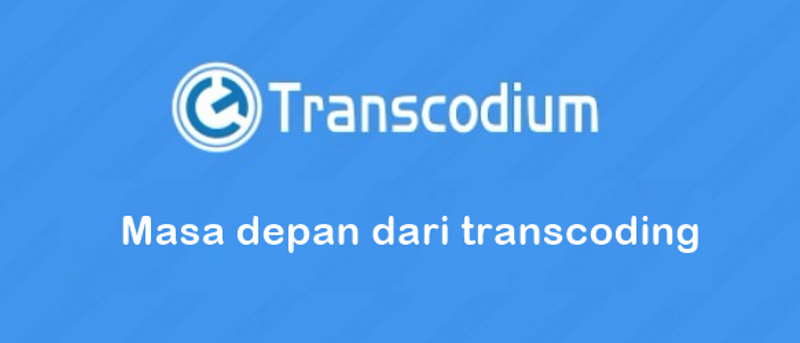
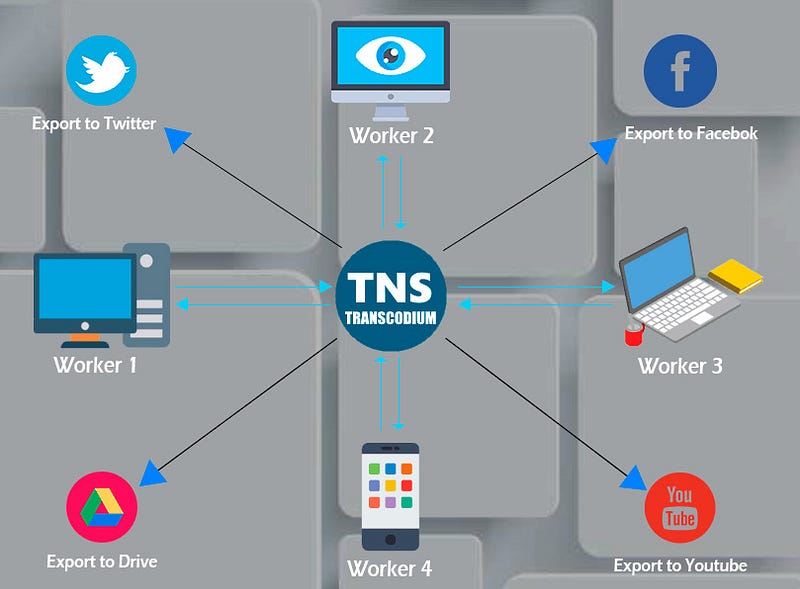
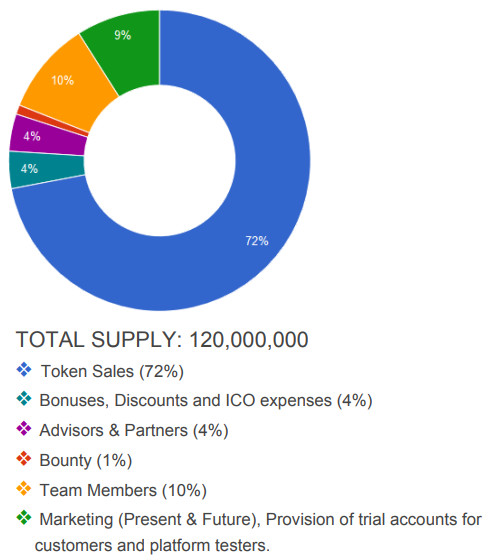
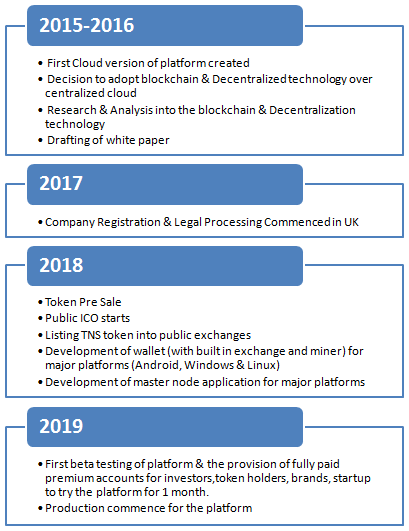
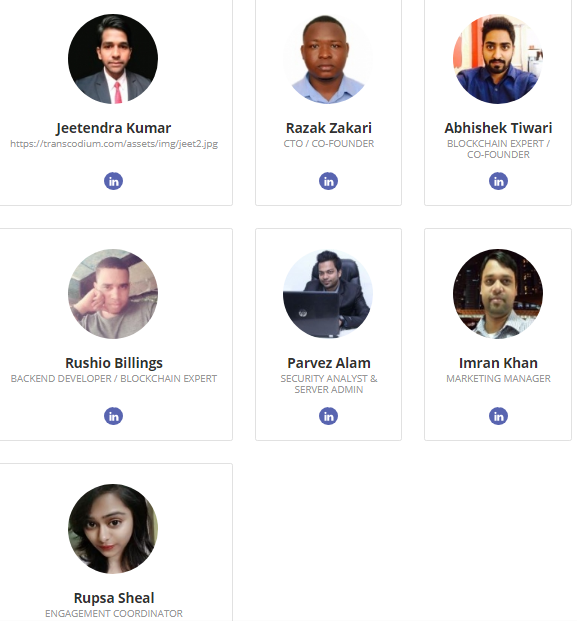
Nhận xét
Đăng nhận xét